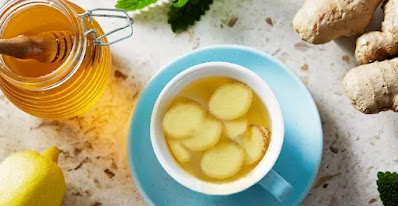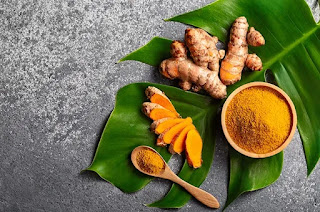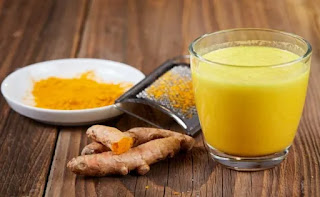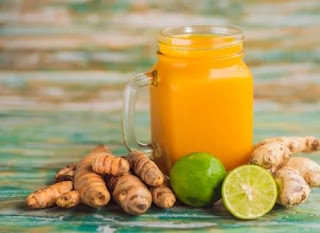Obat maag alami dari tumbuhan yang manjur. Apa yang Anda rasakan ketika sedang menderita maag? Pasti Anda sangat merasa tidak nyaman bukan? Perut yang terasa mulas, nyeri, dan disertai dengan muntah-muntah. Tidak hanya itu, ketika maag kambuh Anda juga sering mengalami diare atau perut sembelit. Ya, rasanya benar-benar sangat tidak menyenangkan.
Namun tidak perlu
khawatir, kini telah banyak obat maag alami dari tumbuhan yang dapat mengurangi
atau bahkan mengatasi masalah maag seperti yang Anda alami. Karena selain
ampuh, obat maag alami ini juga lebih terjangkau dan tentunya tidak memberikan
efek samping.
Dalam artikel ini akan
dibahas 7 obat maag alami dari tumbuhan yang sudah terbukti manjur dalam
mengatasi masalah maag. Semoga dengan adanya informasi ini dapat membantu Anda
yang sedang mencari obat maag alami.
Mengenal Penyebab dan Gejala Maag
Maag merupakan penyakit yang sering di alami oleh masyarakat. Kondisi maag yang tidak sehat dapat menimbulkan berbagai macam masalah seperti sakit perut, mual, dan muntah.
Untuk
mengatasi masalah maag, sebaiknya kita mengenal penyebab dan gejala maag sebelum
mencari obat maag alami dari tumbuhan.
Penyebab maag yang utama adalah infeksi Helicobacter pylori. Bakteri ini hidup di lambung dan dapat menyebabkan peradangan dan iritasi pada lambung.
Penyakit maag juga dapat
disebabkan oleh obat-obatan seperti ibuprofen, aspirin, dan antikoagulan.
Kondisi yang dapat memperburuk maag seperti stress, obesitas, dan merokok.
Gejala maag yang paling
umum adalah sakit perut. Sakit perut ini biasanya muncul setelah makan atau
minum. Anda juga mungkin merasakan mual dan muntah. Diare atau sembelit juga
dapat terjadi karena lambung yang sedang sakit.
Jika anda mengalami salah satu atau lebih dari gejala di atas, segeralah pergi ke dokter untuk mendapatkan diagnosa dan penanganan yang tepat. Dokter akan memberikan obat maag alami dari tumbuhan yang sesuai dengan kondisi anda.
Obat maag alami dari
tumbuhan ini biasanya berupa herbal atau jamu tradisional yang dapat mengurangi
peradangan dan iritasi lambung.
Jadi, jangan menunda
pergi ke dokter jika anda mengalami masalah maag. Segeralah pergi ke dokter
untuk mendapatkan diagnosa dan penanganan yang tepat sebelum masalah maag anda
semakin buruk.
Mengapa Harus Menggunakan Obat Maag Alami?
Mengapa Harus Menggunakan Obat Maag Alami?
Sebagian besar obat maag alami dari tumbuhan di negara-negara maju seperti Amerika Serikat dan Inggris terbuat dari bahan-bahan kimia sintetis. Bahan-bahan kimia sintetis ini seringkali memberikan efek samping yang buruk bagi penggunanya.
Hal ini
seharusnya tidak menjadi masalah besar karena sekarang banyak obat maag alami
dari tumbuhan yang tersedia. Tidak seperti obat maag kimia sintetis, obat maag
alami dari tumbuhan seringkali tanpa efek samping dan jauh lebih aman
digunakan.
Obat maag alami dari tumbuhan juga seringkali lebih efektif daripada obat maag kimia sintetis. Ini karena bahan-bahan kimia sintetis seringkali hanya bekerja pada gejala-gejala obesitas saja dan tidak menyembuhkan penyebab utama obesitas.
Obat maag alami
dari tumbuhan, sebaliknya, seringkali bekerja dengan cara mengurangi produksi asam
lambung. Hal ini berarti bahwa penyebab utama obesitas seperti makan terlalu
banyak atau stres akan dapat diminimalkan dengan menggunakan obat maag alami
dari tumbuhan.
Dalam beberapa kasus, obat maag alami dari tumbuhan juga dapat meningkatkan metabolisme tubuh sehingga Anda dapat menurunkan berat badan dengan lebih cepat.
Beberapa obat maag alami dari tumbuhan juga telah terbukti secara klinis dapat mengurangi risiko penyakit jantung, stroke, dan kanker. Dengan semua manfaat ini, jelas mengapa obat maag alami dari tumbuhan seharusnya menjadi pilihan utama ketika Anda memilih obat maag.
7 Obat Maag Alami yang Efektif dan Aman
Are you looking for an
effective and safe herbal remedy for your stomach problems? Here are 7 obat
maag alami that you can try!
1. Chamomile
Chamomile is a popular
herbal remedy for various digestive issues, including stomach upset, nausea,
and vomiting. It is thought to work by reducing inflammation in the
gastrointestinal tract. Chamomile tea is the most common way to consume this
herb, but it is also available in capsule form.
2. Peppermint
Peppermint is another
herb with a long history of use for digestive issues. It is thought to work by
relaxing the muscles of the digestive tract and increasing bile flow.
Peppermint tea is the most common way to consume this herb, but it is also
available in capsule and oil form.
3. Ginger
Ginger is a common
herbal remedy for nausea and vomiting, and is also thought to be effective for
other digestive issues like indigestion, gas, and bloating. Ginger can be
consumed in many ways, including fresh, dried, powdered, or as an extract or
oil.
4. Licorice
Licorice is an herb with
a sweet flavor that has been used for centuries in traditional Chinese medicine
for digestive issues. It is thought to work by stimulating the production of
stomach juices and promoting the flow of bile. Licorice is available in many
forms, including tea, capsules, and extract.
5. Fenugreek
Fenugreek is a plant
with a long history of use in traditional medicine for digestive issues. It is
thought to work by stimulating the production of stomach acids and promoting
the flow of bile. Fenugreek is available in many forms, including seeds, powder,
capsules, and tea.
6. Catnip
Catnip is an herb that
is related to mint and has a long history of use as a remedy for digestive
issues. It is thought to work by relaxing the muscles of the digestive tract
and increasing bile flow. Catnip is available in many forms, including fresh,
dried, or as an extract.
7. Marshmallow
Marshmallow is a plant
that has been used traditionally as a digestive aid. It is thought to work by
coating the mucous membranes of the gastrointestinal tract and providing a
barrier against irritation. Marshmallow is available in many forms, including
tea, capsules, and extract.
Kunyit
Kunyit, also known as
Curcuma longa, is a spice that has been used in Asian cuisine for centuries.
The rhizome (root) of the plant is dried and ground into a powder that is used
to flavor food. Kunyit has a slightly bitter, earthy flavor and is often used
in curries, stews, and soups.
Kunyit is a good source
of several nutrients, including iron, manganese, and vitamin C. It also
contains curcumin, a substance that has powerful anti-inflammatory and
antioxidant effects.
Recent research has
shown that curcumin can help to improve cognitive function and reduce the risk
of Alzheimer's disease. It may also help to protect against heart disease and
cancer.
While more research is
needed to confirm these benefits, kunyit is a safe and healthy spice to add to
your diet.
Jahe
Jahe is one of the most
popular herbs in Indonesia. It is often used to add flavor to food or to make
traditional medicines. Jahe is also known as ginger, and it is part of the
Zingiberaceae family. This plant is native to Indonesia, and it has a long
history of being used as a medicinal herb.
Jahe has many health
benefits, and it is often used to treat stomach problems like indigestion,
nausea, and diarrhea. Jahe is also used to treat arthritis and other
inflammatory conditions. This herb can also boost the immune system and help to
fight off infections.
Jahe is usually consumed
in the form of a tea, and it can be made by boiling the ginger root in water.
Jahe tea is often sweetened with sugar or honey, and it can be enjoyed hot or
cold. This tea is a great way to enjoy the benefits of Jahe, and it is also a
refreshing and delicious drink.
Temulawak
Temulawak (Curcuma
xanthorrhiza) is a plant that has been used traditionally in Indonesia for
centuries as an herbal remedy for digestive issues. The plant is a member of
the ginger family and its roots are used to make a variety of different
products, including powders, capsules, and teas.
Temulawak is thought to
be effective in treating a number of different gastrointestinal disorders,
including indigestion, diarrhea, and constipation. It is also sometimes used as
a natural treatment for ulcers. In addition to its digestive benefits,
temulawak is also used as a liver tonic and for managing diabetes.
There is some scientific
evidence to support the use of temulawak for digestive issues. One study found
that an extract of the plant was effective in treating diarrhea in rats.
Another study found that temulawak root powder was effective in reducing
stomach acidity and improving digestion in humans.
While there is some
science to back up the traditional uses of temulawak, more research is needed
to confirm its efficacy. If you're considering using temulawak for any reason,
be sure to speak with your healthcare provider first.
Bawang Putih
Bawang putih ( Allium
sativum) is a plant in the onion genus, Allium. Its close relatives include the
onion, garlic, shallot, leek, chive, and Chinese onion. The name "bawang
putih" is Indonesian for "white onion".
The plant has a bulb and
tall, hollow green leaves. When the bulb is sliced open, it has a
characteristic pungent, sulfuric smell.
The bulb of the bawang
putih is used as a spice in many cuisines, including Indonesian, Thai, Lao,
Cambodian, Vietnamese, Malaysian, Burmese, and others. It is also a major
ingredient in Worcestershire sauce.
The health benefits of
bawang putih have been known for centuries. It is a natural antibiotic and
antifungal agent. It is also effective in treating coughs, colds, and flu.
Bawang putih is a good
source of Vitamin C, potassium, magnesium, and calcium. It also contains
compounds that can help lower cholesterol and blood pressure.
If you are looking for
an obat maag alami dari tumbuhan (natural remedy for stomach acid), bawang
putih is a good choice. It can be taken as a spice in food or made into a tea.
Pepaya
When it comes to
finding an effective and sustainable treatment for digestive disorders, many
people turn to natural remedies. obat maag alami dari tumbuhan, or herbal
remedies, have been used to treat stomach problems for centuries. One of the
most popular and well-known herbs for treating digestive issues is pepaya.
Pepaya is a tropical
fruit that is native to Mexico and Central America. The fruit is often used in
salads, desserts, and smoothies. Pepaya is also a popular ingredient in many
traditional medicines. The pulp and seeds of the fruit are often used to make
teas and extracts that are said to be effective in treating stomach problems.
One of the most common
uses for pepaya is as a treatment for indigestion. The fruit is high in fiber
and pectin, which can help to bulk up stools and reduce intestinal
inflammation. Pepaya is also a good source of enzymes that can help to break
down food and reduce gas and bloating.
Pepaya can also be used
as a treatment for diarrhea. The fruit is high in soluble fiber, which can help
to absorb water and slow down the passage of stool. The pectin in pepaya can
also help to bind stool and make it more solid.
Pepaya is a safe and
effective natural remedy for digestive problems. The fruit can be eaten fresh,
or dried and made into teas or extracts. If you are pregnant or breastfeeding,
talk to your doctor before taking pepaya in any form.
Lidah Buaya
Lidah buaya, or aloe
vera as it is more commonly known, is a plant with a long history of use in
natural medicine. The thick, fleshy leaves of the plant contain a gel-like
substance that is rich in nutrients and antioxidants.
There are many different
ways to use aloe vera for health and wellness. The gel can be applied topically
to the skin to soothe burns or other skin irritations. It can also be ingested
in small amounts to help with digestive issues like heartburn or constipation.
But one of the most
interesting ways to use aloe vera is as a natural treatment for ulcers.
A 2014 study published
in the journal Phytotherapy Research found that aloe vera gel was effective in
healing gastric ulcers in rats. The study authors concluded that aloe vera
could be a promising natural treatment for ulcers in humans as well.
There are many different
theories as to how aloe vera helps heal ulcers. Some believe that the plant’s
anti-inflammatory properties help to reduce swelling and inflammation in the
digestive tract. Others believe that aloe vera helps to promote cell growth and
repair, which can speed up the healing process.
If you are interested in
trying aloe vera for ulcers, talk to your healthcare provider first. While the
gel is generally considered safe for most people, there can be some side
effects, especially if it is taken in large amounts.
And be sure to buy aloe
vera gel that is specifically labeled for internal use. Some aloe vera gels on
the market are not meant to be ingested and can actually make your ulcer worse.
Air Putih dan
Lemon
Lemonade, or “Air Putih
dan Lemon” as it is known in Indonesia, is a refreshing drink that is perfect
for hot weather. It is made by mixing fresh squeezed lemon juice with water and
sugar.
Today, lemonade is
popular all over the world, and it is often drunk with ice or sparkling water.
It can also be made into a frozen treat, or “es campur”, which is a popular
Indonesian street food.
There are many health
benefits associated with drinking lemonade. Lemons are a good source of Vitamin
C, and they also contain antioxidants which can help to protect against cancer.
Lemonade can also help to boost the immune system and fight off infections.
If you are sufferings
from a stomachache or indigestion, lemonade can also be a great natural remedy.
The citrus acids in lemons can help to break down food and ease digestion. To
make a natural stomachache remedy, just add a teaspoon of honey to your
lemonade.
So next time you are
feeling hot and thirsty, reach for a glass of refreshing “Air Putih dan Lemon”.
It’s delicious and good for you too!








Tidak ada komentar
Posting Komentar